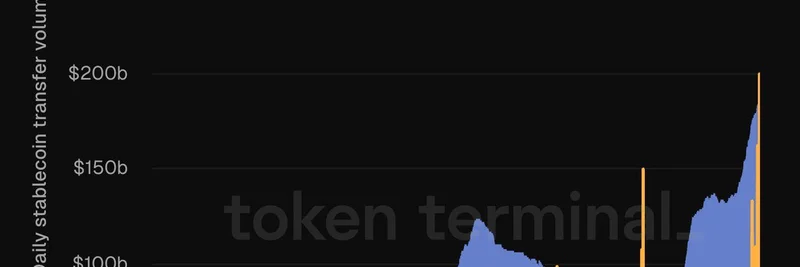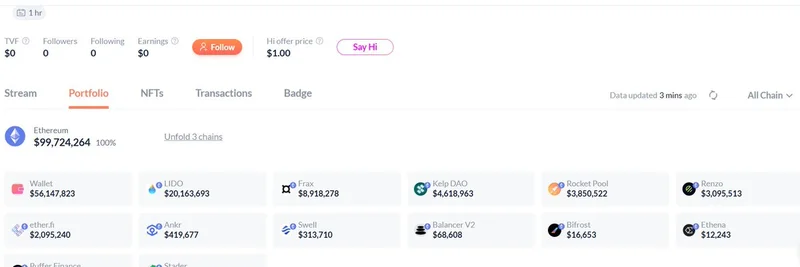Why Solana’s Anatoly Yakovenko Thinks L1 Flexibility Matters
On May 10, 2025, Anatoly Yakovenko, co-founder of Solana, dropped a thought-provoking tweet that’s got the crypto community buzzing. He argued that Layer-1 (L1) protocols—like Solana—need to be flexible enough to let apps compete on their own terms, especially when it comes to transaction prioritization. If they don’t, apps might just pack up and move to another L1. His tweet, posted at 16:44 UTC, quotes a thread by Alex Nezlobin (@0x94305) discussing the risks of prioritizing cancellations in decentralized exchanges (DEXs). Let’s break this down and see why it’s a big deal.
The Core of Yakovenko’s Argument
Yakovenko’s main point is simple but powerful: L1 blockchains shouldn’t stifle apps by imposing rigid rules on how they operate. If an app wants to grow by experimenting with transaction prioritization—say, by deciding which trades get processed first—it should be free to do so. Why? Because growth drives innovation, and innovation keeps ecosystems alive. If an L1 like Solana blocks apps from trying new ideas (even bad ones), those apps will jump ship to a more permissive blockchain.
He puts it bluntly: “It doesn’t matter if something is a good or bad idea. Even blocking apps on trying bad ideas that they think could help with growth is an incentive for them to move off the L1.” This is a bold stance, especially for Solana, which prides itself on speed and scalability—handling up to 65,000 transactions per second as of 2023. But Yakovenko’s warning highlights a tension in blockchain design: balancing protocol rules with developer freedom.
The Context: Alex Nezlobin’s Thread on DEXs and Cancels
Yakovenko’s tweet quotes a thread by Alex Nezlobin, a crypto researcher, who dives into why prioritizing cancellations in DEXs can backfire. In his thread, Nezlobin argues that focusing on cancels over trades creates three problems:
Spam from Arbitrageurs: When cancels are prioritized, arbitrageurs (traders who profit from price differences across platforms) can’t predict their profits due to shifting liquidity. This leads them to spam the network with swaps at different priority levels, clogging the system.
Wider Spreads: Prioritizing cancels doesn’t actually tighten spreads (the gap between buy and sell prices), as smart routers will penalize venues that do this, making trading less efficient.
MEV Taxes as a Better Fix: Nezlobin suggests that MEV (Maximal Extractable Value) taxes—fees on profits from transaction ordering—can address the same issues without needing to prioritize cancels, creating a fairer system.
Nezlobin’s thread uses a meme to drive the point home: a stressed-out “mechanism designer” sweating over two buttons labeled “MEV taxes” and “prioritizing cancels.” The implication? Picking the wrong approach can mess up the whole system.
What’s MEV, and Why Does It Matter Here?
Let’s pause for a quick explainer. MEV, or Maximal Extractable Value, refers to the profit a miner or validator can make by reordering, including, or excluding transactions in a block. Think of it like a VIP list at a club: whoever pays the most (or knows the bouncer) gets in first. On blockchains, this can lead to front-running (where a trader jumps ahead of another’s transaction to profit) or other exploitative practices. A 2024 Forbes article notes that MEV can centralize power in the hands of a few big players, which clashes with crypto’s decentralized ethos.
Yakovenko’s argument ties into this because transaction prioritization—whether it’s about cancels, trades, or something else—directly affects MEV. If Solana’s L1 protocol is too restrictive, apps can’t experiment with ways to manage MEV, and they might lose out to competitors on other blockchains that give them more wiggle room.
The Community Weighs In
The tweet sparked some interesting replies. Alex Nezlobin himself chimed in, clarifying that his thread was a warning against DEXs prioritizing cancels, not a critique of base-layer prioritization. He noted that while he’s not against priority ordering at the L1 level, pure First-Come-First-Serve (FCFS) ordering is hard to achieve in a decentralized system. He also mentioned that FCFS might be better than priority ordering in some cases, but it’s not practical in a truly decentralized world.
Another user, @swen_sjn, agreed with Yakovenko, saying, “want execution on L1? unblock execution.” Meanwhile, Yakovenko doubled down in a follow-up reply to Nezlobin, saying that markets often subsidize liquidity providers (LPs), and prioritizing cancels might just be another way to do that—though he’s not sure if it’s better or worse.
Why This Matters for Solana and Beyond
This debate isn’t just academic—it’s a real issue for Solana, which has positioned itself as a high-performance blockchain for DeFi, NFTs, and more. Solana’s integration with platforms like Shopify for Solana Pay shows its focus on real-world adoption. But if apps feel constrained by Solana’s rules, they might move to competitors like Ethereum, Stellar, or BitShares, which also host DEXs with varying degrees of flexibility (as noted in a Stanford Journal of Blockchain Law & Policy essay).
The broader crypto space is also wrestling with transaction ordering. A Sei Labs blog post from March 2025 highlights how protocols like FastLane’s Atlas and Vertex are experimenting with application-specific sequencing to reduce MEV risks. Yakovenko’s tweet aligns with this shift: by giving apps more control, L1s can foster innovation while addressing issues like front-running and spam.
The Bigger Picture: Freedom vs. Fairness
At its core, Yakovenko’s argument is about striking a balance between freedom and fairness. Too much control at the L1 level can kill innovation, but too little can lead to chaos—like spam or unfair MEV extraction. Solana’s ecosystem is thriving, with projects like Pumpfun driving revenue (as noted on Solana Compass), but debates like this will shape its future.
What do you think? Should L1 protocols like Solana give apps total freedom to experiment, even if it risks bad outcomes? Or should they set stricter rules to keep things fair? Drop your thoughts in the comments—I’d love to hear your take!




